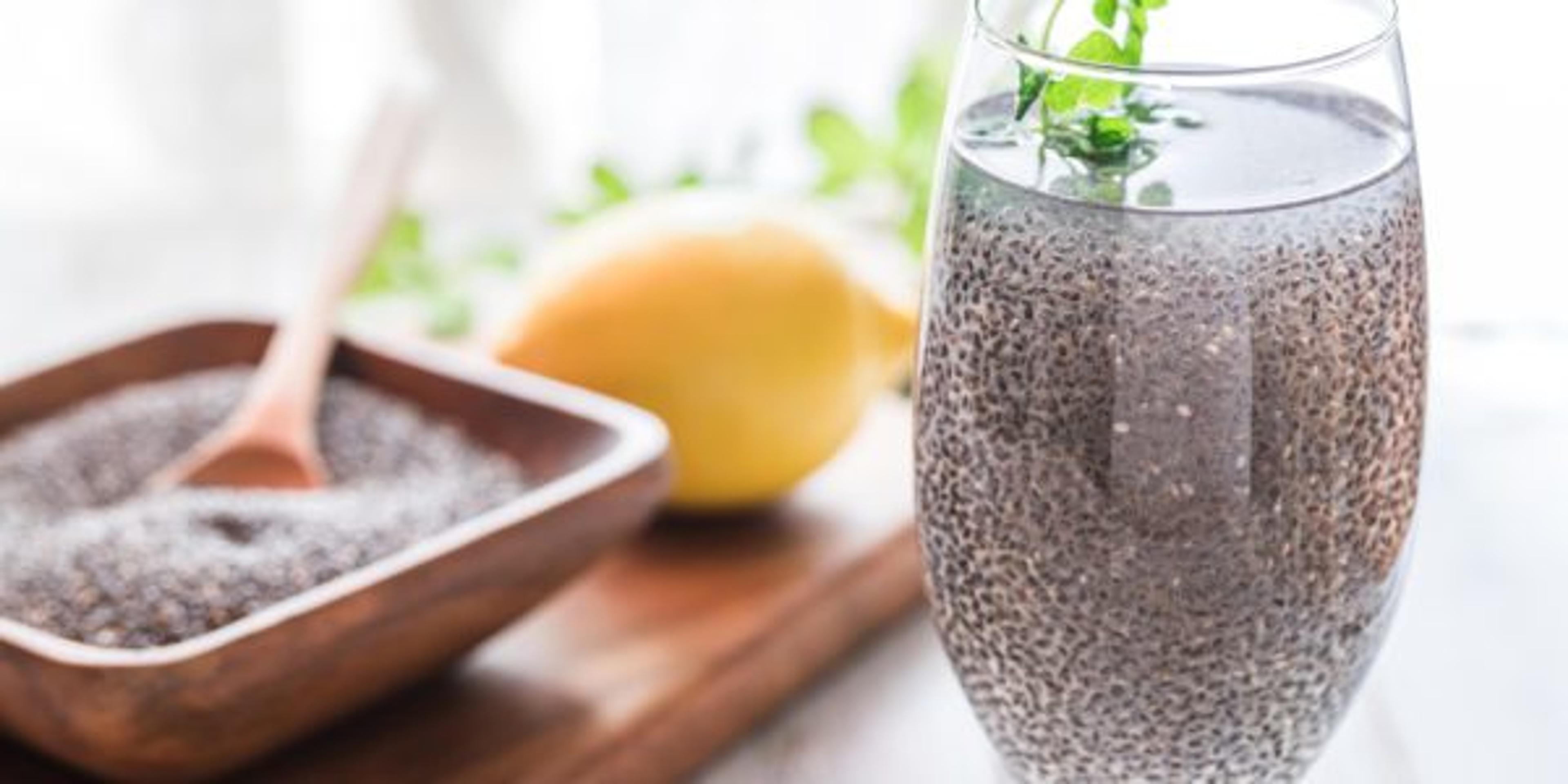TikTok Fact Check: Chia Seed Water
Shandra Martinez
| 3 min read

For a tiny speck, the chia seed has a huge following when it comes to social media platforms. On TikTok alone, chia-themed videos have amassed more than one billion views. A lot of these have to do with the popular chia water trend: the claim that mixing a spoonful or two of chia seeds into a glass of water and drinking it can help people lose weight. Is this just an online fad, or is there health evidence to back this up? Let’s take a closer look at the health benefits of the little but mighty chia seed.
A superseed. In the world of superfoods, chia is known as a superseed. It’s an edible seed from a flowering plant that is part of the mint family. Its ancient origins trace back to the Mayans and the Aztecs as foods used regularly during those eras. There’s no denying chia seeds have modern day health benefits, too. They are packed with fiber, antioxidants and are a good source of omega-3 fatty acids, according to WebMD. Here are the highlights of chia seeds’ health benefits:
- Lowers blood sugar levels
- Lowers the risk of metabolic syndrome and Type 2 diabetes
- A 1-ounce serving provides 39% of your daily fiber needs
- Fights inflammation in your body
- Lowers blood pressure
- Reduces the risk of heart disease
- Fights the free radicals in your body that can damage your cells
What about those TikTok claims? In the last year, claims about chia seeds have peppered social media platforms and inundated TikTok with how-to videos for chia water, chia pudding and other spots you should be sprinkling these little grayish-black seeds. But how do those claims really match up to health research? A dietitian from the Cleveland Clinic weighed in on the trend recently and said there’s actually a lot of truth to the advice that mixing a spoonful or two of chia seeds into a 8-ounce glass of water will keep you full longer and give you a good shot of health benefits. That’s because when chia seeds are mixed into water – or any kind of milk or liquid – they form a seedy gel. It has very little taste, but it does provide a big dose of fiber and minerals. When it hits your stomach, it expands and can keep you feeling full much longer than just a regular glass of water, juice or coffee.
Why slower digestion matters. The chia and water mixture works to slow digestion in the body. Why is this important? Slower digestion prevents blood sugar spikes and helps keep it a stead. Feeling full longer also means you likely won’t eat as much between meals, leading to a healthier diet.
Too much of a good thing. But chia and water drinkers should beware: you can have too much of a good thing. Eating chia seeds or drinking chia seed mixtures means you need to drink more water than normal. And if you’re new to chia seeds, start with small doses – maybe just a half a tablespoon in a full glass of water. Too many seeds can cause constipation, bloating or intestinal upset.
Cheers for chia seeds. Even if chia and water doesn’t sound like a great beverage for you, see if you can find ways to add this protein-dense, nutritional powerhouse into your diet. Your body will be glad you did. Here are some of the superstar stats of a 1-ounce serving, according to Healthline:
- Fiber: 9.8 grams
- Calories: 138
- Protein: 4.7 grams
- Calcium: 14% of the daily value (DV)
- Zinc: 12% of the DV
- Magnesium: 23% of the DV
- Iron: 12% of the DV
- Vitamin B1: 15% of the DV
Related:
Photo credit: Getty Images





